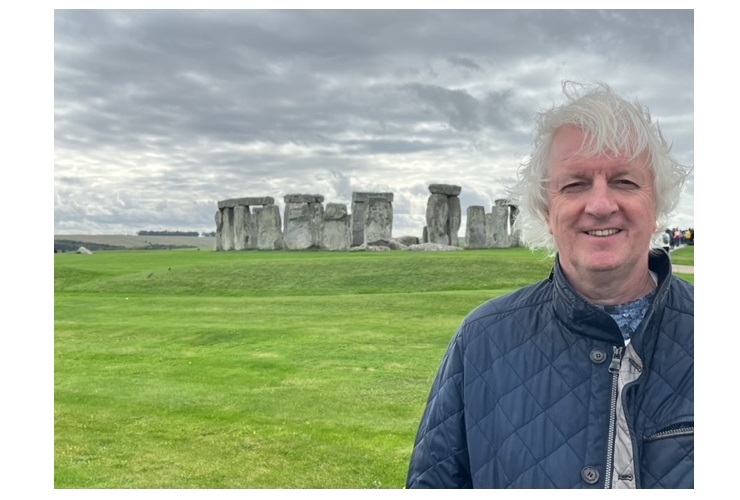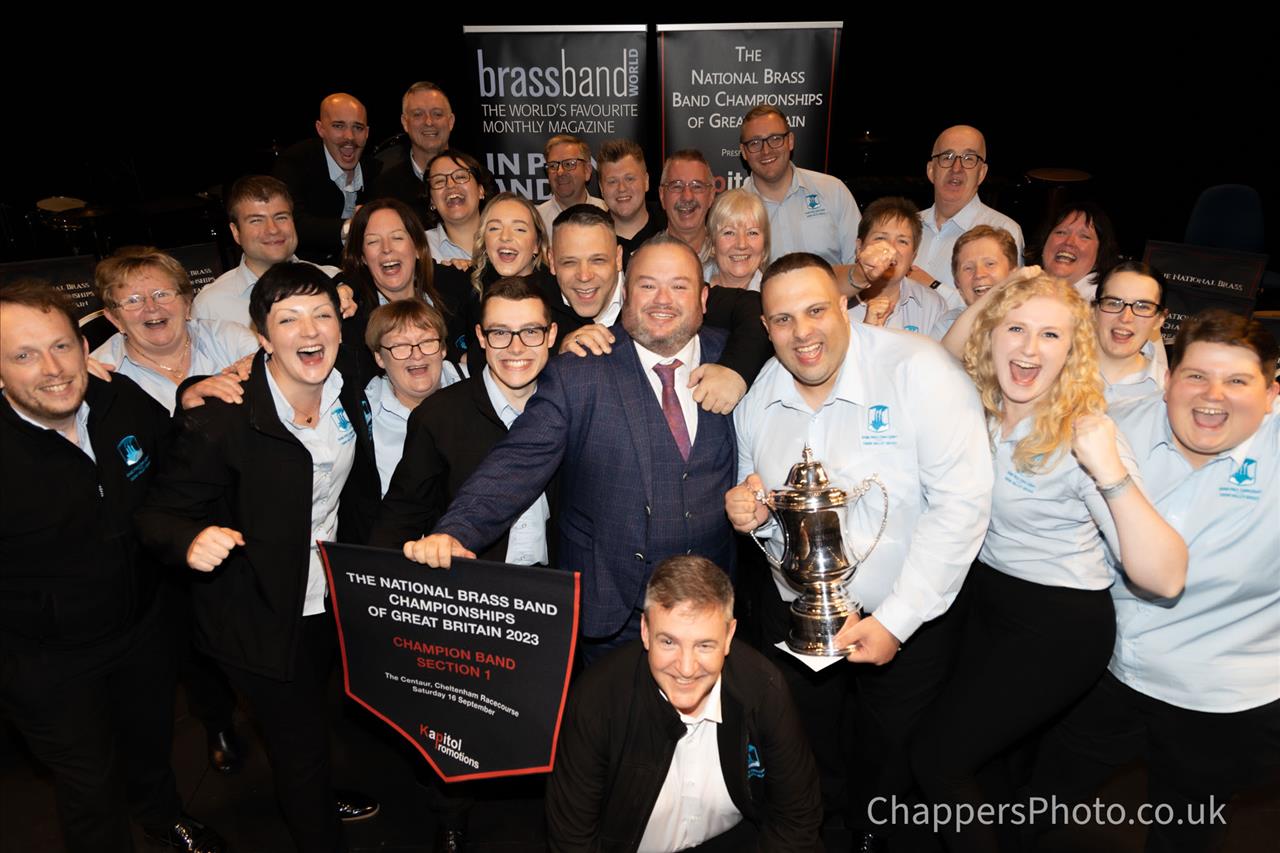
It is now over 30 years since the First Section came into being. Whether or not it has been a success in that time in bridging ambition to the actual true level of what Championship banding should be, remains open to debate.
Of the list of title winners since 1992, three were in the line-up at the British Open on the weekend, also playing a test-piece written by composer Jan Van der Roost. However, at least five no longer exist.
In its way it accurately marks the variable health of the top end of the banding movement in the UK.
Plenty to ponder
At its best winning the First Section provides the decisive step required for a band to make a lasting impact at Championship level, whilst for others the effort to remain there can quickly become terminally exhausting.
Plenty to ponder then as 19 bands tackle a test-piece that also offers a challenging slice of the musical realism many will face at the Area Championships early next year.
The winner’s trophy should come with a health warning inscribed on its base.
Plenty to ponder then as 19 bands tackle a test-piece that also offers a challenging slice of the musical realism many will face at the Area Championships early next year.

Mythical aspects
‘Excalibur’ was written in 1987, and has been used sparingly as a contest set-work (although more popular as an own-choice) since.
Awarded the ‘Adolfe Sax Composition Prize’, it forms part of a ‘triptych’ of works loosely inspired by the composer’s love of the more mythical aspects of the Middle Ages, and which includes ‘Stonehenge’ (1991) and ‘Albion’ (2001).
it forms part of a ‘triptych’ of works loosely inspired by the composer’s love of the more mythical aspects of the Middle Ages, and which includes ‘Stonehenge’ (1991) and ‘Albion’ (2001).
As with ‘The Lost Circle’ at Symphony Hall, ‘Excalibur’ can be approached either literally or figuratively.
And whilst the composer stresses that there is no narrative story to follow, he does admit to it being an ‘atmospheric’ retelling of the mythical virtues of chivalry, love and power imbued by the sword directly to King Arthur.

Inspiration
However, depending on whether conductors buy into that, or even gain inspiration from John Boorman’s 1980’s fantasy film of the same name, we will have to wait and see.
It is certainly filmatic and slightly tongue in cheek in its musical language; setting the scene early with its bold introduction as Arthur heads nimbly west (almost to Nevada cowboy country it seems) on his trusty steed and that date in sword pulling destiny.
The euphonium heralds the multi-instrumental exploration of love and tenderness that soon extends in flow to a series of climaxes (with church bells heralding the spiritual union of Arthur and Guinevre) and ultimate repose.
The euphonium heralds the multi-instrumental exploration of love and tenderness that soon extends in flow to a series of climaxes (with church bells heralding the spiritual union of Arthur and Guinevre) and ultimate repose.
The final section is all about power; mythical and magical, driven and purposeful (with ‘Sparkish’ hints) as it all gets increasingly frenetic (the clopping hooves of Arthur’s poor old nag going ten to the dozen at times) as the action, figuratively or literally, seems to take a detour in inspiration to Rome let alone Tintagel.
Withing scope
It will be interesting to see what the bands and their MDs make of it in the deadened acoustic of The Centaur.
Technically it should be within the scope of the best, but whether they can display the flexibility to draw out the texture and colour from the typically dense Van der Roost scoring without simply opting to overblow (much like at the British Open), will be interesting to hear for both the audience and the judges Roger Argente, Dr Robert Childs and Alan Morrison.
The contenders:
The Welsh of Ebbw Valley claimed the title last year, completing the ‘Grand Slam’ of Fourth (2013); Third (2014) and Second Section (2015) Cheltenham victories. They are now looking forward to adding the top section title to their CV at the Royal Albert Hall in a few weeks’ time.
This year it will be up to regional champion Northop Silver (fresh from their British Open appearance) and BTM Band (also a former British Open contender but making their first appearance here since 2021) to retain Welsh possession.

Lone challenger
Their fellow Scottish Celts have enjoyed success in the last couple of years after not providing a winner since the contest started in 1992, with Unison Kinneil (2019) and Kingdom Brass (2021) heading north with the silverware.
This time there is a lone challenger in champion Kirkintilloch (another band who not so long ago graced the British Open), as Granite City did not accept their invitation to compete.
Further south come the rejuvenated North of England contenders of North Skelton (back for the first time since 2019) and the equally upwardly mobile Tewit Silver, who must surely get a hotel discount as they are making their making their sixth appearance in Cheltenham since 2018.
Yorkshire pride
Yorkshire pride falls on the broad shoulders of Area victor and 2005 First Section National champion, Yorkshire Imperial, and Crofton Silver (last appearance in 2018) as they look to repeat Stannington’s 2022 success.
Meanwhile, from over the Pennines comes the strong looking trio of champion, Wardle Anderson (who came 6th last year), Tyldesley (back for the second time in three years) and Blackburn & Darwen (last appearance in 2021).
Yorkshire pride falls on the broad shoulders of Area victor and 2005 First Section National champion, Yorkshire Imperial, and Crofton Silver (last appearance in 2018) as they look to repeat Stannington’s 2022 success.
Closer to Cheltenham, the Midlands sends a highly competitive trio of Area champion Langley (making their first appearance since 2010), Jackfield (2020) and 2006 National champion, Kibworth.
Even closer still comes the West of England contenders of Area victor City of Bristol (returning for the first time since 2016), Michelmersh Silver (2019) and Lydbrook (2006), whilst it will be up to Area champion Horsham Borough (last appearance 2005), Kidlington (2017) and Milton Keynes Brass (2018) to see if they can be the first from the London & Southern Counties region to claim the title since Friary Guildford in 2010.
Iwan Fox
Section 1:
Saturday 14th September
Test piece: Excalibur (Jan van der Roost)
Start: Following Section 3
Blackburn & Darwen (Daniel Thomas)
BTM (Jeff Hutcherson)
City of Bristol (David Hirst)
Crofton Silver (Dean Jones)
Horsham Borough (Will Wilkins)
Jackfield (Ryan Richards)
Kibworth (Brendan Caddy)
Kidlington Concert (Jonathan Pippen)
Kirkintilloch (Hedley Benson)
Langley (Cliff Parker)
Lydbrook (Gareth Ritter)
Michelmersh Silver (Kevin Smith)
Milton Keynes (Matthew Brown)
North Skelton (Tim Oldroyd)
Northop Silver (Mark Peacock)
Tewit Silver (Martin Hall)
Tyldesley (Neil Samuel)
Wardle Anderson (Brad McCulloch)
Yorkshire Imperial (Garry Hallas)
(Granite City from Scotland did not accept the invitation to compete)













